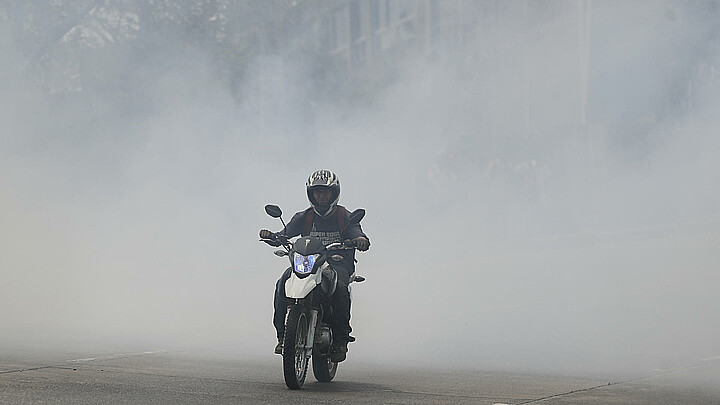Health
Ecuadorian legislature legalizes abortion for rape cases; conservative president threatens veto
“I don’t believe in abortion, just as I don’t believe in the death penalty," said President Guillermo Lasso
February 18, 2022 12:05pm
Updated: February 18, 2022 5:54pm
Ecuador’s National Assembly voted Thursday to allow abortion when a pregnancy is the result of rape, following an April 2021 ruling from the Andean nation’s Constitutional Court that decriminalized such abortions.
“Today the congress made a majority decision after a wide, participative, lay and democratic debate about a bill of great importance for the present and future of the girls, adolescents and women of this country,” Assembly speaker Guadalupe Llori said after the legislation passed.
Although abortion has been legal in Ecuador since 1938 in cases when a woman’s life is at risk, the new measure – passed on a 75-41 vote with 14 lawmakers abstaining – will allow the procedure to be performed within the first 12 weeks of pregnancy for women in urban areas and up to 16 weeks in rural areas if conception is a product of rape, Infobae reported.
Under the new law, women will not be required to report their rape to the police in order to access an abortion, but will have to fill out an informed consent form. Although the public health system is required to provide the procedure, individual doctors are allowed to conscientiously object to performing the procedure.
But some abortion rights campaigners have warned that the new law is still too restrictive, however, and have argued that women will continue to seek illegal, sometimes deadly, abortions.
“The assembly has once again failed girls, women, survivors and victims of sexual violence,” Sarahi Maldonado of feminist collective Las Comadres told reporters outside the National Assembly building. “They put in more barriers so girls are obliged to give birth and seek illegal abortions.”
According to the Ecuadorian non-profit Trenzando Feminismos, more than 21,000 abortions are performed in Ecuador each year – most of them in dangerous clandestine clinics.
“Life cannot be negotiated,” said Paul Garcia, who was protesting outside the legislature with anti-abortion groups. “They want to murder another victim inside the womb of the mother.”
But conservative President Guillermo Lasso has also expressed opposition to the new law and has said that he will veto the National Assembly’s measure if it exceeds what the high court stipulated.
“This bill, if it is approved as it has been known in the media, obviously will be vetoed by the Executive,” Lasso told reporters last month. “Ecuador knows me, I am a person who believes in the defense of life from conception to natural death.”
“I don’t believe in abortion, just as I don’t believe in the death penalty.”








